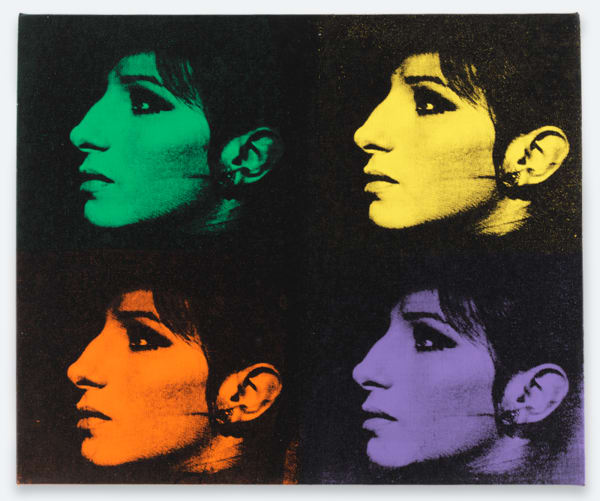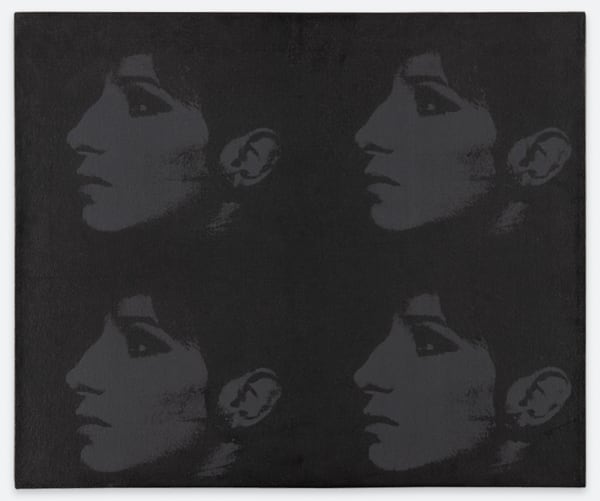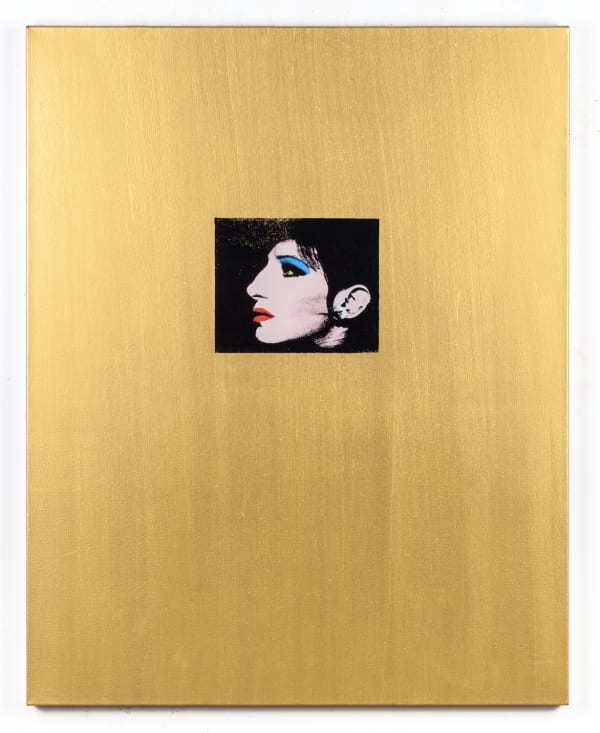-
-
Deborah Kass’ "Warhol Project" cemented her as one of the most crucial voices for Feminist art in the 1990s. Adroitly recreating Warhol's signature style, Kass leveraged the cultural clout of the existing canon to challenge systems of power.
Beginning in 1992, Kass' expansive "Warhol Project" marked a landmark achievement for Post Modern Feminist art. Advances in Feminist painting during the 1960s and 1970s had been disrupted, in part by the masculine bravado of the Reagan era. Feminist artists pivoted towards mediums such as photography, printmaking, graphic design, and new media, with artists like Cindy Sherman, Barbara Kruger, and Jenny Holzer pushing boundaries. Wishing to use the new language of subjectivity developed throughout the 1980s to rekindle the potential for Feminist painting, Kass began leveraging art history for its cultural clout, cleverly injecting it with her own narrative. Warhol was a natural fit for the gesture, himself having appropriated photography for his signature screenprinted paintings. Kass carefully studied his techniques in order to emulate his style with incredible precision, deftly interjecting her own subject matter. For her initial foray into the series, in place of a portrait of Jackie Kennedy, Kass offered the recognizable profile of Barbra Streisand—an indelible icon of Jewish womanhood, and a crucial topic within Kass' total oeuvre.
-
Shatter the Canon Hosted by Marina Mottin
Friday, March 26 | 5 pm CT
Virtual Walk-through
Kavi Gupta is pleased to participate in a private walk-through of Art Basel's OVR: Pioneers hosted by Marina Mottin.
opportunity to view works by influential artists who have broken new grounds in terms of socio-political concepts, artistic mediums and more.
Deborah Kass will provide insights on the works featured in The Warhol Project, providing the audience with an exclusive opportunity to further explore her groundbreaking historic work on an intimatel level. -
Kass revisits Streisand in her My Elvis series, which features an image of Streisand from the film Yentl. Based on Warhol's beloved image of Elvis as a cowboy, Kass' Yentl speaks to a story of rebellion, power disruption, and gender politics. The film Yentl tells the story of a Jewish woman who dresses and lives as a man in order to receive an education in the Talmudic Law, and features a love triangle between herself (dressed as a man), another man, and another woman.
-
Kass further explores a queer perspective on Jewish womanhood through the recurrent image of Gertrude Stein. Stein, born in America but most famous for her time spent in Europe, was a Jewish lesbian author with a fervent cult following in the literary world and glimmers of mainstream attention both during and after her life. Kass exalts Stein through her transformations of Warhol's Let Us Now Praise Famous Men and Let Us Now Praise Famous Men (Rauschenberg Family), which become Let Us Now Praise Famous Women and The Family Stein.
-
Equally in the realms of the physical and the cerebral, Kass' portrait of choreographer Elizabeth Streb proposes an alternative model for performance and visibility. The piece was inspired by Warhol's portraits of Merce Cunningham, who like Streb was at the forefront of modern dance and frequently collaborated across mediums with artists of all kinds.
-
Perhaps Kass' least known Warhol appropriations belong to her Most Wanted, series. Subverting Warhol's controversial 1964 series Thirteen Most Wanted Men, which was based on NYPD photos of actual criminals, Kass bypasses the ethical question of featuring unwilling subjects by featuring images of her own peers and colleagues, theatrically staged to resemble Warhol's criminals. These visually arresting photos are an art world time capsule, capturing pivotal moments in the careers of Thelma Golden, Paul Schimmel, Kellie Jones, Robert Storr, Donna De Salvo and Terrie Sultan.
-

















